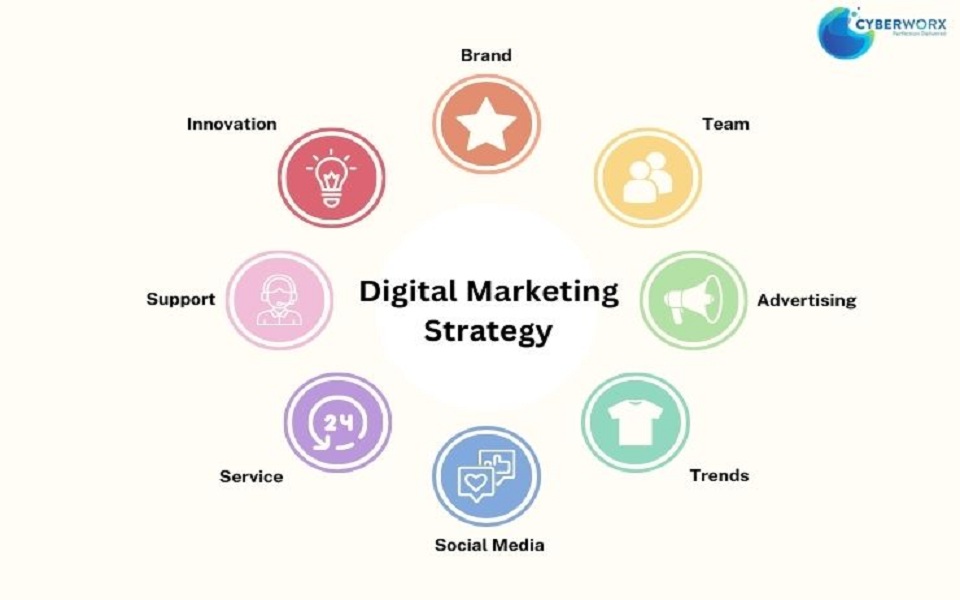Digital marketing is constantly changing. With so many buzzwords and options, it can feel like decoding a secret language just to figure out what your business truly needs. But here’s the thing — mastering digital marketing services isn’t about chasing every shiny new trend. It’s about understanding what works for your business through a smart digital marketing strategy that aligns with your unique goals.
Let’s cut through the noise and demystify what digital marketing really means for your brand.
What Are Digital Marketing Services?
Digital marketing services include the range of online marketing tactics businesses use to reach and engage their customers. From optimizing your website to managing social media ads, these services cover everything that helps your brand show up, get noticed, and build relationships in the digital world.
Key components include:
- Search Engine Optimization (SEO)
- Pay-Per-Click (PPC) Advertising
- Social Media Marketing
- Content Marketing
- Email Marketing
These services can be offered by agencies, freelancers, or in-house teams, depending on your needs.
The Role of a Digital Marketing Strategy
A well-defined digital marketing strategy is your game plan. Without it, even the best tools and services are like ships sailing without a compass. Your strategy connects your business goals with the right digital tactics, ensuring every effort is purposeful and effective.
For example, if your goal is brand awareness, social media and content marketing might be your focus. If you want immediate sales, PPC could be more effective. A good strategy keeps all these moving parts aligned.
Types of Digital Marketing Strategies
Search Engine Optimization (SEO)
SEO is all about digital marketing strategies your website attractive to search engines like Google. It’s split into:
- On-page SEO: Optimizing your website’s content and structure
- Off-page SEO: Building backlinks and social proof
- Technical SEO: Improving site speed, mobile-friendliness, and crawlability
Done right, SEO drives organic traffic — people actively searching for your products or services.
Pay-Per-Click Advertising (PPC)
PPC is a way to buy traffic. You place ads on platforms like Google or Facebook and pay only when someone clicks. It’s perfect for fast results and highly targeted audiences.
Budgeting and bidding strategies are crucial here — it’s like an auction where you compete for ad placement.
Social Media Marketing
Social media isn’t just posting pretty pictures. It’s about choosing the right platforms, creating engaging content, building a community, and analyzing performance to keep improving.
Platforms vary Instagram might work for fashion brands, LinkedIn for B2B companies.
Content Marketing
Content is king because it builds trust and educates your audience. Think blogs, videos, infographics anything that provides value and encourages sharing.
Good content fuels SEO and social media efforts alike.
Email Marketing
Despite being one of the oldest digital channels, email marketing remains incredibly effective. Building a segmented list and sending personalized emails can nurture leads and boost customer loyalty.
Choosing the Right Digital Marketing Services for Your Business
Before jumping into contracts, take a step back:
- Assess your business needs: What do you want to achieve? More traffic, sales, or brand loyalty?
- Evaluate providers: Look for experience, transparency, and how well they understand your industry.
- Understand pricing: Beware of low-cost offers that deliver low value. Aim for ROI, not just cheap services.
Measuring the Success of Digital Marketing Campaigns
Tracking performance is key. Keep an eye on:
- KPIs: Website traffic, conversion rates, cost per lead, customer acquisition cost, etc.
- Tools: Google Analytics, SEMrush, HubSpot, and others provide insights.
- Data interpretation: Use numbers to tweak and improve your strategy over time.
Common Challenges in Digital Marketing
Digital marketing isn’t always smooth sailing:
- Algorithms change, affecting SEO and social media reach.
- Managing multiple platforms can overwhelm resources.
- Budget limits require smart prioritization.
Understanding these helps you stay resilient and adaptive.
Future Trends in Digital Marketing
Stay ahead by watching these trends:
- AI and automation: Chatbots, predictive analytics, and smarter ad targeting.
- Voice search optimization: With smart speakers rising, optimizing for voice queries is crucial.
- Personalization: Customers expect tailored experiences.
Conclusion
Digital Marketing services are powerful, but only when chosen wisely. A smart, customized digital marketing strategy aligned with your business goals is your ticket to sustainable growth. Instead of chasing every tactic, focus on what truly moves the needle for your brand.
Ready to demystify digital marketing and unlock your business’s potential?
FAQs
- What is the difference between SEO and PPC?
SEO is organic and long-term, improving your website’s natural search ranking. PPC is paid ads for immediate traffic. - How can social media marketing benefit my business?
It builds brand awareness, engages customers, and drives traffic or sales. - What is the ROI of email marketing campaigns?
Email marketing often delivers a high ROI due to its direct, personalized nature. - How often should I update my digital marketing strategy?
Review at least quarterly to adapt to changes and optimize performance. - What are the best tools for measuring digital marketing success?
Google Analytics, SEMrush, HubSpot, and social media insights are great starting points.









